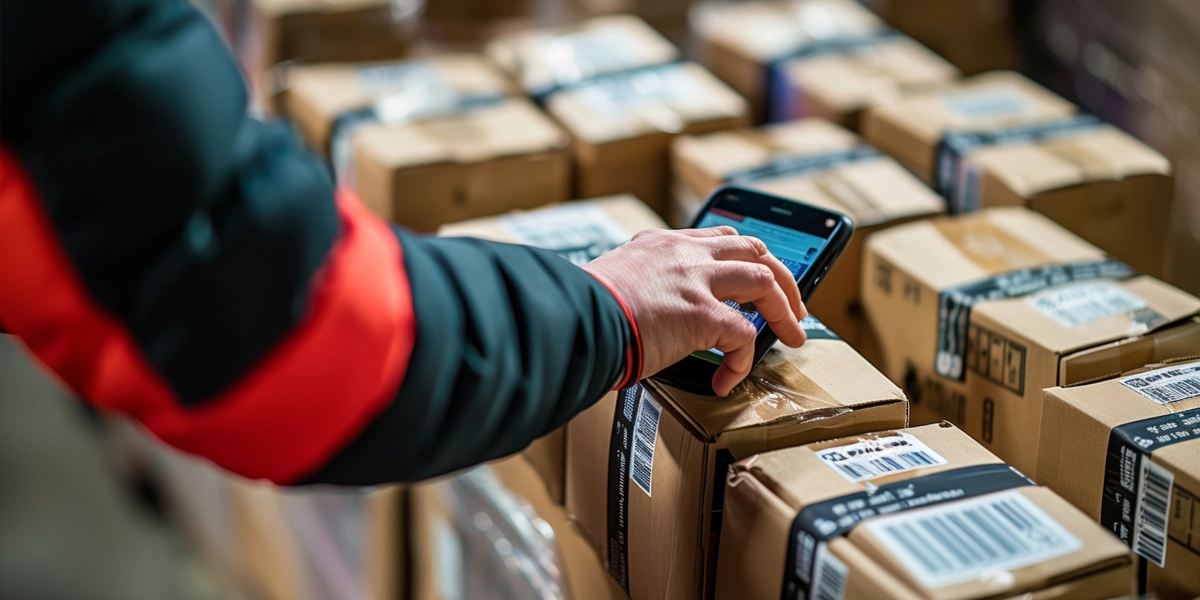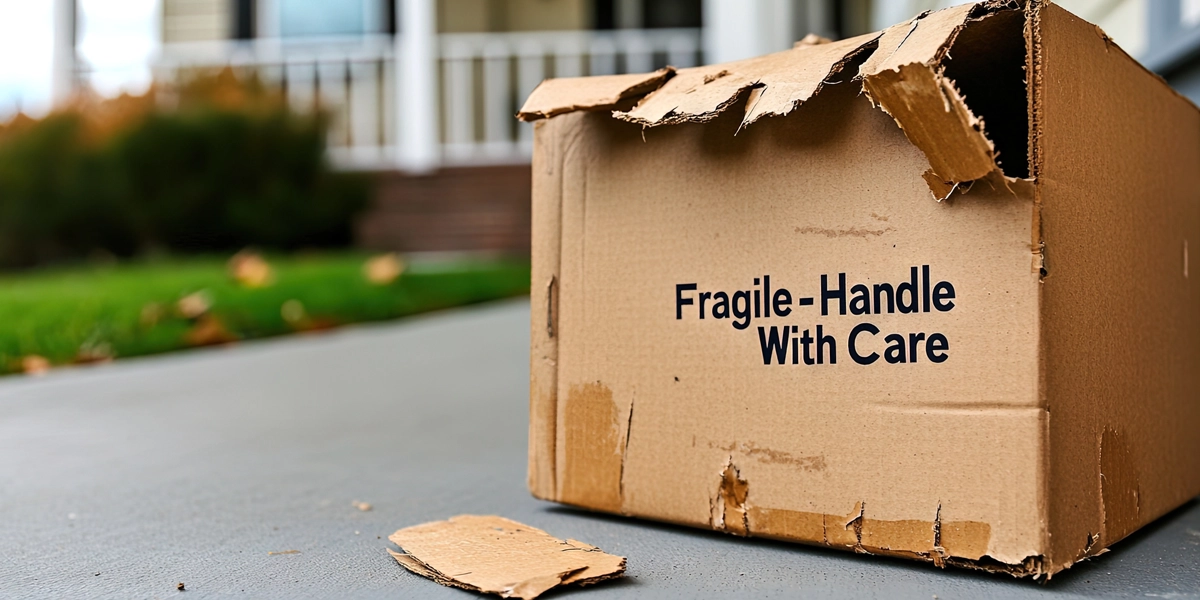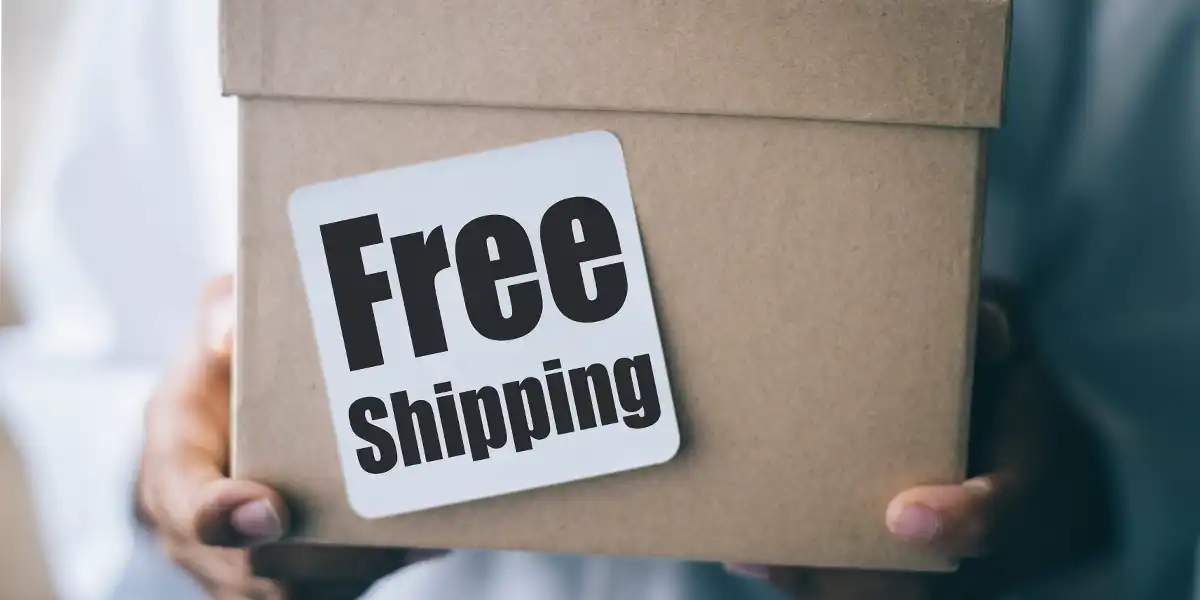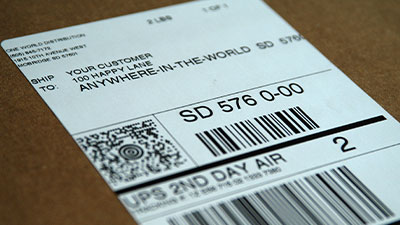In This Article:
The ecommerce industry has exploded in recent years, driven by consumer demand for convenience, variety, and personalization. Central to this growth is the role of fulfillment—ensuring that products are stored, picked, packed, and delivered efficiently. Fulfillment is not just a back-end operation; it’s a critical component of customer satisfaction and brand loyalty.
Outsourcing fulfillment can be a game-changer for your business. It allows you to leverage specialized expertise and infrastructure, freeing up your resources to focus on core competencies. But how do you know when it’s the right time to make this move?
If you are having trouble handling fulfillment on your own and scaling your operations, partnering with a reliable ecommerce fulfillment company might be the right move. We’ll explore the signs it’s time to outsource your fulfillment operations, the benefits of a partnership, and how to choose the right third-party logistics (3PL) provider.
Understanding Fulfillment Services
What is Fulfillment in Ecommerce?
Fulfillment refers to the entire process of receiving, processing, and delivering orders to customers. But how exactly does a 3PL work? For a typical ecommerce business, fulfillment from start to finish follows several steps:
- Receiving Inventory: Accepting products from suppliers.
- Warehousing: Storing inventory in an organized manner.
- Order Processing: Picking, packing, and preparing items for shipment.
- Shipping: Sending packages to customers through carriers.
- Handling Returns: Managing product returns and exchanges.
Efficient fulfillment is crucial for keeping customers happy and running operations smoothly.
Different Types of Fulfillment Services
Ecommerce businesses can choose from various types of fulfillment services based on their specific needs:
- Direct-to-Consumer (D2C): This service caters directly to individual consumers, shipping products directly from the warehouse to the customer’s doorstep.
- Subscription Box: Tailored for subscription box businesses, this service not only manages recurring shipments of curated products to subscribers but also handles the assembly of the kits. This allows businesses to outsource the entire process, from kit assembly to final delivery, ensuring a seamless experience for both the business and the subscribers.
- Crowdfunding: For businesses that have successfully crowdfunded a product, this service takes care of shipping to backers.
- Dropshipping: This service allows 3PLs to ship orders on behalf of retailers without requiring the retailer to stock inventory. Typically, 3PLs utilize existing stock that is also used for other sales channels, enabling efficient order fulfillment directly to customers while the retailer focuses on sales and marketing.
- Business-to-Business (B2B): Fulfills orders between businesses, often involving bulk shipments and specialized packaging required by retailers or distributors.
- Personalized-to-Consumer (P2C): An exclusive One World Direct service, P2C fulfillment allows businesses to offer product customization and personalization. Examples include embroidery, personalized greeting cards, direct-to-object printing, and engraving options at checkout.
The Role of 3PL Providers in Modern Logistics
3PLs play a crucial role in today’s supply chain management. They offer comprehensive solutions that include:
- Fulfillment Centers: Facilities designed to efficiently handle warehousing, order processing, and shipping.
- Technology Integration: Advanced systems for managing inventory, tracking shipments in real-time, and seamlessly connecting with ecommerce platforms.
- Scalability: The ability to quickly adapt to changes in order volumes without sacrificing service quality.
Working with a 3PL provider like One World Direct can greatly improve your business’s logistics capabilities. These providers allow you to concentrate on what you do best while ensuring your customers receive their orders promptly and accurately.
Signs It's Time to Outsource Your Fulfillment Operations
1. Increased Order Volumes
Managing increased order volumes effectively is essential for maintaining customer satisfaction and operational efficiency. Key indicators that your business is experiencing rising order volumes include:
- Consistent growth in sales: Regularly hitting or exceeding sales targets.
- Higher frequency of orders: More frequent purchases and repeat customers.
- Seasonal spikes: Noticeable increases during peak seasons like holidays or promotional events.
Failing to manage these increased orders can lead to several negative consequences:
- Delayed shipments: Orders take longer to process, leading to late deliveries and unhappy customers.
- Stockouts: Inadequate inventory levels result in missed sales opportunities.
- Operational bottlenecks: Overburdened staff and systems struggle, causing inefficiencies, and picking and packing errors.
Outsourcing fulfillment during high-demand periods offers several benefits:
- Scalability: 3PLs can scale operations up or down based on demand, ensuring timely order processing.
- Advanced technology: Access to state-of-the-art systems for inventory management, EDI integration, order tracking, and shipping.
- Expertise: Professional fulfillment services bring industry-specific knowledge and best practices to handle large order volumes smoothly.
By identifying these indicators early and understanding the benefits of outsourcing, you can ensure that your business continues to meet customer expectations and maintains operational efficiency even during periods of high demand.
Explore more about fulfillment services offered by One World Direct that cater to increasing order demands effectively.
2. Decreased Efficiency in Internal Processes
Maintaining efficiency in order fulfillment is critical. When internal processes start lagging behind industry standards or your own expectations, it can be a clear indicator to outsource fulfillment.
Signs of Decreased Efficiency:
- Order Processing Delays: If orders are taking longer to process than usual, this could signify inefficiencies.
- High Error Rates: Frequent mistakes in picking, packing, or shipping orders suggest that your current system is not keeping up.
- Customer Complaints: An increase in complaints about slow delivery times or incorrect orders can point to deeper issues within your fulfillment operations.
- Inventory Discrepancies: Inaccurate stock levels that lead to overselling or stockouts are red flags.
Streamlining Operations with Outsourcing:
Outsourcing fulfillment can significantly enhance speed and accuracy by leveraging the expertise and technology of 3PLs. Here’s how:
- Automated Systems: 3PLs use advanced warehouse management systems (WMS) to automate order processing, reducing human error and speeding up operations.
- Optimized Picking Strategies: Techniques like batch picking can streamline the order-picking process, making it faster and more efficient.
- Scalable Solutions: 3PLs offer scalable solutions that grow with your business, ensuring you can handle increased order volumes without compromising efficiency.
- Expert Handling of Returns: Efficient return handling is crucial for maintaining customer satisfaction. A specialized provider can manage returns, reducing the burden on your internal team. (Explore handling damaged returns.)
By outsourcing your fulfillment operations, you gain access to cost-effective fulfillment services that not only meet but often exceed industry standards, ensuring a smoother and more reliable experience for your customers.
3. Limited Warehouse Space for Storing Inventory
Challenges Faced by Businesses with Limited Storage Capabilities
Running out of warehouse space can severely hinder your ability to scale operations and meet customer demands effectively. Indicators to outsource fulfillment include:
- Increased Order Volumes: As order volumes swell, so does the need for more storage.
- Efficiency in Order Fulfillment: Cramped spaces lead to disorganization, delayed shipments, and errors in order processing.
Limited storage affects operational efficiency and strains resources and manpower. The lack of space often forces businesses to compromise on inventory variety and stock levels, impacting customer satisfaction and sales.
Advantages of Partnering with 3PLs
Outsourced warehousing and fulfillment services can address numerous logistical challenges by offering:
- Ample Warehouse Space: 3PLs provide extensive storage facilities, accommodating varying inventory sizes and allowing you to order larger product batches. This often leads to discounted wholesale rates from manufacturers.
- Flexible Storage Solutions: They adapt to fluctuating demands, offering scalable options without long-term commitments.
Partnering with a 3PL enables you to leverage their infrastructure and expertise, ensuring that your products are stored efficiently and dispatched promptly, ultimately reducing overhead costs associated with maintaining in-house storage facilities.
For instance, 3PL providers like One World Direct offer custom pack-outs, gift wrapping, and kitting solutions tailored to your needs. These services are particularly beneficial during peak seasons or promotional events when inventory levels surge.
By utilizing outsourced warehousing and fulfillment solutions, you can focus on core business activities while leaving the complexities of storage management to seasoned professionals.
4. Lack of Focus on Core Competencies Due to Operational Demands
Operational demands can often divert attention from your core competencies, which are essential for scaling business operations and maintaining competitiveness. When your team is bogged down by the intricacies of order fulfillment, it’s easy to lose sight of strategic initiatives that drive growth. Here are some indicators to outsource fulfillment:
- Overwhelmed Internal Teams: If your employees are constantly juggling between fulfilling orders and managing strategic tasks, it’s a clear sign that operational demands are overshadowing core activities.
- Diminished Innovation: A focus on routine tasks leaves little room for creativity and innovation, stifling your ability to stay ahead.
Outsourcing fulfillment can refocus your resources on what truly matters. Here’s how:
- Expert Handling of Fulfillment Tasks: Partnering with a 3PL provider ensures that experts manage your order fulfillment processes, enhancing efficiency and accuracy. This allows your internal team to concentrate on product development, marketing strategies, and customer engagement.
- Scalability Without Compromise: Outsourcing provides the flexibility to scale operations seamlessly during peak seasons or unexpected demand spikes without hampering service quality.
By leveraging external expertise, you not only streamline operations but also unlock new avenues for business growth. For more insights on improving ecommerce customer experiences, check out our best customer service tips and best practices.
5. Rising Overhead Costs Due to In-House Fulfillment
Maintaining an extensive in-house fulfillment operation comes with significant financial implications. The costs associated with labor, technology, and facility expenses can quickly add up, impacting your bottom line.
Indicators to Outsource Fulfillment:
- Labor Costs: Hiring and retaining a skilled workforce for your fulfillment operations is expensive. From wages to benefits and training, these costs can strain your budget.
- Technology Investments: Modern fulfillment requires advanced systems for inventory management, order processing, and tracking shipments. Investing in cutting-edge technology can be capital-intensive.
- Facility Expenses: Managing your own warehouse involves substantial costs related to rent, utilities, maintenance, and security.
Outsourcing to specialized providers like One World Direct offers substantial cost benefits due to their economies of scale. These providers spread their fixed costs over multiple clients, allowing them to offer competitive pricing.
Cost Benefits of Outsourcing:
- Reduced Labor Costs: By outsourcing fulfillment, you eliminate the need for a large in-house team, reducing payroll and associated expenses.
- Access to Advanced Technology: 3PLs invest heavily in state-of-the-art technology. This means you benefit from cutting-edge systems without the hefty upfront investment.
- Lower Facility Expenses: Partnering with a 3PL removes the burden of managing warehouse space, reducing your overhead costs significantly.
Increased order volumes and efficiency in order fulfillment are other key indicators that it might be time to consider outsourcing. Some 3PLs also offer call center services that can further enhance customer satisfaction by handling your calls, chats, and emails on your behalf.
6. Outdated Technology Hindering Inventory Management Efficiency
Relying on outdated technology for inventory management can significantly hinder your business operations. Aging systems often struggle with:
- Order Processing: Slower processing times lead to delays, impacting customer satisfaction.
- Tracking Shipments: Inaccurate reporting can result in lost or delayed shipments, increasing customer inquiries and dissatisfaction.
- Stock Level Management: Inefficient stock level management can cause overstocking or stockouts, both of which are costly (learn more and check out our lot management guide).
Other indicators you need to outsource fulfillment include frequent system crashes, slow response times, and manual data entry errors. These issues not only reduce efficiency in order fulfillment but also increase the risk of human error, leading to dissatisfied customers.
Modern technology solutions offered by 3PLs can address these challenges. By outsourcing, you gain access to advanced inventory management systems and AI logistics solutions that provide real-time updates and seamless integration with various ecommerce platforms. This ensures accurate order processing and tracking, minimizing errors and delays.
Key advantages of modern technology solutions through 3PL partners include:
- Automated Processes: Automation reduces manual intervention, speeding up order processing and reducing errors.
- Real-Time Tracking: Enhanced tracking capabilities provide up-to-date information on shipment status, improving customer communication.
- Data Analytics: Advanced analytics help predict demand trends, optimize stock levels, and reduce costs.
Integrating these advanced systems can be a game-changer for your business. It will allow you to focus on core competencies while ensuring efficient order fulfillment. Outsourcing your fulfillment operations not only addresses technological shortcomings but also enhances overall efficiency and customer satisfaction.
Benefits You Can Gain from Outsourcing Your Fulfillment Operations Effectively
1. Flexibility and Scalability to Meet Changing Customer Demands Without Strain
Outsourcing your fulfillment operations provides unmatched flexibility and scalability, allowing your business to adapt swiftly during peak seasons or unexpected spikes in demand. By leveraging the expertise of a 3PL, you can ensure that service quality remains uncompromised, even under pressure. This adaptability prevents excessive long-term costs and maintains customer satisfaction.
Key Advantages:
- Adaptability: External partners can quickly adjust their operations to handle increased volumes, ensuring timely deliveries.
- Cost Efficiency: Avoid the expenses associated with scaling up in-house operations by utilizing the existing infrastructure of 3PL providers.
- Resource Allocation: Free up internal resources to focus on strategic initiatives rather than operational challenges.
2. Access to Specialized Knowledge That Drives Efficiency Gains Throughout The Supply Chain
Collaborating with seasoned professionals who understand industry best practices not only enhances operational efficiency but also provides access to a broader network of industry experts. This specialized knowledge is critical for optimizing processes from warehouse receiving through last-mile delivery stages.
Key Advantages:
- Leveraging a Network of Industry Experts: Experienced 3PLs have established relationships with trusted partners who can assist with projects outside the 3PL’s core offerings. This includes sourcing custom packaging solutions, scheduling shipments with recommended freight forwarders for discounted rates, and connecting you with ecommerce consultants who provide insights into website optimization, manufacturing, and more.
- Strategic Partner Integration: By tapping into the 3PL’s network, brands can access resources and expertise that may not be available in-house, leading to more comprehensive and cost-effective solutions across the supply chain.
- Adherence to Best Practices: Professionals stay updated on the latest industry standards and regulatory requirements, ensuring compliance, operational excellence, and reducing overall logistics costs.
Tapping into this pool of knowledge allows for:
- Enhanced Flexibility in Inventory Management: Partnering with a 3PL equipped with advanced systems and technologies enables precise tracking of inventory levels. This reduces the risk of stockouts and overstock situations, ensuring that your inventory is managed efficiently. Additionally, the 3PL’s robust network allows for flexibility in adjusting inventory strategies to meet market demands, further supporting accelerated business growth.
- Enhanced Customer Experience: Efficient fulfillment processes contribute to timely deliveries, boosting customer satisfaction and loyalty.
When considering the benefits of outsourcing fulfillment, flexibility in operations and scalability in business are critical factors. By leveraging the expertise of 3PL providers, you can focus on strategic growth while they handle the complexities of order processing and shipping.
This strategic partnership ensures that every step—from warehouse management to delivery—is optimized for performance, ultimately driving your business forward with precision and reliability.
3. Expanded Geographic Reach Enabling Faster Shipping Times Across Diverse Markets
Positioning multiple fulfillment centers near key customer bases offers significant advantages. Strategically placed centers lower transportation expenses per package and ensure shorter transit times compared to relying on a single location.
Benefits of Strategic Warehouse Placement:
- Reduced Shipping Costs: Strategic placement of fulfillment centers closer to your customers significantly reduces the distance each package must travel. This proximity minimizes shipping costs by lowering the mileage involved, directly benefiting your bottom line.
- Faster Delivery Times: With fulfillment centers located near key markets, transit times are shortened, leading to quicker deliveries. Faster shipping enhances customer satisfaction and boosts the likelihood of repeat business, offering a critical edge in today’s competitive ecommerce landscape.
- Operational Flexibility: Strategically placed warehouses allow your business to respond swiftly to changing demand across various regions. This flexibility ensures a robust and responsive supply chain, even during peak periods or sudden market shifts, helping you maintain a high level of service regardless of external pressures.
By integrating these logistical benefits with outsourced order processing and shipping, businesses can achieve greater efficiency and customer satisfaction. A well-executed strategy for outsourced order processing enhances geographic reach and overall service quality.
4. Reduced Stress Levels For Your Internal Teams Who Can Focus On Strategic Growth Initiatives Rather Than Operational Challenges
Outsourcing fulfillment services offer significant benefits to your business, particularly in terms of stress reduction and operational efficiency.
Stress Reduction in Logistics Management:
- Alleviating Logistical Burdens: By partnering with experienced 3PL, you can offload the complexities of order processing, inventory management, and shipping. This means your internal teams are no longer bogged down by daily operational challenges.
- Flexibility in Operations: Outsourced fulfillment provides flexibility that is difficult to achieve with an in-house setup. Whether it’s scaling up during peak seasons or managing unexpected spikes in demand, 3PL providers have the infrastructure and expertise to handle these fluctuations.
- Scalability in Business: As your business grows, so do your fulfillment needs. Outsourcing allows you to scale operations without the need for significant capital investment in warehousing and technology. This scalability is crucial for maintaining service quality as you expand.
Outsourcing eliminates the need to manage the intricacies of logistics internally, allowing your team to focus on what they do best—crafting strategies that drive business growth and enhance customer satisfaction.
Evaluating Your Current Fulfillment Strategy Before Making The Leap To Outsource
1. Identifying Pain Points Within Your Existing Approach That Could Be Improved Upon Through External Support
Evaluating the benefits of a 3PL starts with a thorough analysis of your current fulfillment strategy. Identifying pain points in your existing approach is crucial to understanding where external support can make a significant impact.
Key Areas to Assess:
- Order Processing Delays: Are you facing frequent bottlenecks that delay order processing? Issues could include slow picking and packing, inadequate inventory replenishment, or outdated technology systems.
- High Error Rates: Mistakes in order fulfillment, such as incorrect items, improper packaging, and shipping errors, can erode customer trust. Evaluate your error rates to determine if they are within acceptable industry standards.
- Scalability Issues: Can your current setup handle peak seasons or unexpected spikes in demand? Limited scalability can result in delayed shipments and backorders, affecting customer satisfaction.
- Warehouse Management Challenges: Is your warehouse layout optimized for efficiency? Are you struggling with space constraints or inefficient storage facility use? Leveraging the ample warehouse space offered by 3PL providers can alleviate these challenges.
- Cost Inefficiencies: In-house fulfillment operations often have high overhead costs related to labor, technology, and facility maintenance. Compare these expenses against the cost-effectiveness offered by specialized 3PL providers, who benefit from economies of scale.
Benefits of Third-Party Logistics:
- Advanced Technology: Modern 3PL providers offer state-of-the-art technology solutions that enhance accuracy and speed in order processing, inventory management, and shipment tracking.
- Expertise and Best Practices: Partnering with seasoned professionals ensures adherence to industry best practices, reducing errors and improving overall efficiency throughout the supply chain.
- Flexibility and Scalability: External support allows you to adapt swiftly during high-demand periods without compromising service quality. This flexibility ensures you consistently meet customer expectations.
- Expanded Reach: Leveraging the geographic reach of 3PL providers enables faster shipping times across diverse markets, enhancing your ability to serve a global customer base effectively.
- Cost Savings: Outsourcing fulfillment operations can significantly reduce overhead costs associated with maintaining an extensive in-house setup. This financial relief allows you to allocate resources more strategically toward other initiatives.
2. Analyze Potential Gains From Switching Over To An Outsourced Solution
Evaluating the benefits of third-party logistics involves understanding both immediate and long-term advantages. Transitioning to an outsourced model should be a strategic decision based on thorough analysis.
Key Steps in Assessing Outsourcing Viability:
Cost Comparison:
- In-House Fulfillment Costs: Calculate current expenses, including labor, technology, facility maintenance, and shipping.
- Outsourced Fulfillment Costs: Obtain quotes from potential 3PL providers like One World Direct (OWD).
Service Enhancements:
- Technology Integration: Evaluate the benefits of modern tech solutions provided by 3PLs for order processing, inventory management, and shipment tracking.
- Speed and Accuracy: Examine how outsourcing can enhance operational efficiency through specialized knowledge and advanced systems.
Scalability and Flexibility:
- Handling Fluctuations: Assess the ability to scale operations during peak seasons or sudden demand spikes without compromising service quality.
- Warehouse Space: Consider the availability of flexible storage solutions offered by partners like OWD with multiple fulfillment centers.
Customer Experience:
- Enhanced Support Services: To improve customer satisfaction, consider value-added services such as custom unboxing, gift wrapping, and personalized-to-consumer (P2C) options.
- Faster Shipping Times: Leverage the geographical reach of 3PLs to ensure timely deliveries across diverse markets.
By systematically evaluating these aspects, businesses can determine whether outsourcing fulfillment aligns with their current needs and future growth plans. Partnering with experts like One World Direct ensures not just cost savings but significant service improvements tailored to your unique requirements.
Making The Decision To Move
Choosing the right fulfillment partner is a critical decision that can significantly impact your business’s efficiency, customer satisfaction, and growth trajectory. Here’s the main things you should consider:
Comprehensive Evaluation Criteria
- Scalability: Ensure the provider can handle your current volume and scale up during peak seasons or as your business grows.
- Technology Integration: Check for seamless integration with your existing ecommerce platform, marketplace, ERP, OMS, or other systems.
- Service Range: Look for comprehensive services including custom pack-outs, gift wrapping, eco-friendly fulfillment, kitting, returns management, and international shipping capabilities.
- Geographic Reach: Assess their ability to cover your target markets efficiently, especially if rapid delivery times are crucial.
- Customer Support: Evaluate the quality of customer service offered. This includes account management and support channels like chat, email, and phone.
- Cost Structure: Analyze their pricing model to understand how it aligns with your budget while ensuring value for money.
Strategically Partnering with One World Direct (OWD)
One World Direct stands out in the fulfillment industry with its extensive experience and innovative solutions:
- Personalized-to-Consumer (P2C) Fulfillment: Free plug-in for product personalization such as embroidery, engraving, and printing at checkout.
- Global Fulfillment Services: Custom unboxing experiences, flexible shipping options from three fulfillment centers covering 99% of the U.S. within two days.
- Advanced Technology Solutions: Open API connectivity and in-house software team ensuring integrations with shopping carts, marketplaces, and retailers are seamless.
- Comprehensive Customer Service: 20+ years in customer support via multiple channels, ensuring high-quality interaction that fosters brand loyalty.
Making the Final Decision
When you have thoroughly evaluated potential providers against these criteria, it becomes easier to make an informed choice. The focus should always be on how well a provider aligns with your business needs and growth plans.
By partnering with experts like One World Direct, you gain not only operational efficiency but also a strategic advantage that can propel your business forward in competitive markets. Find out if OWD is the right fit for you during a complimentary logistics consultation. Our fulfillment experts will analyze your current operations and show you ways you can lower expenses while improving fulfillment experiences. Schedule a call today!
In This Article:
Subscribe to our Newsletter
Tincidunt urna mauris eu quam vulputate lobortis sit. Purus feugiat arcu nunc quisque massa ut.



























